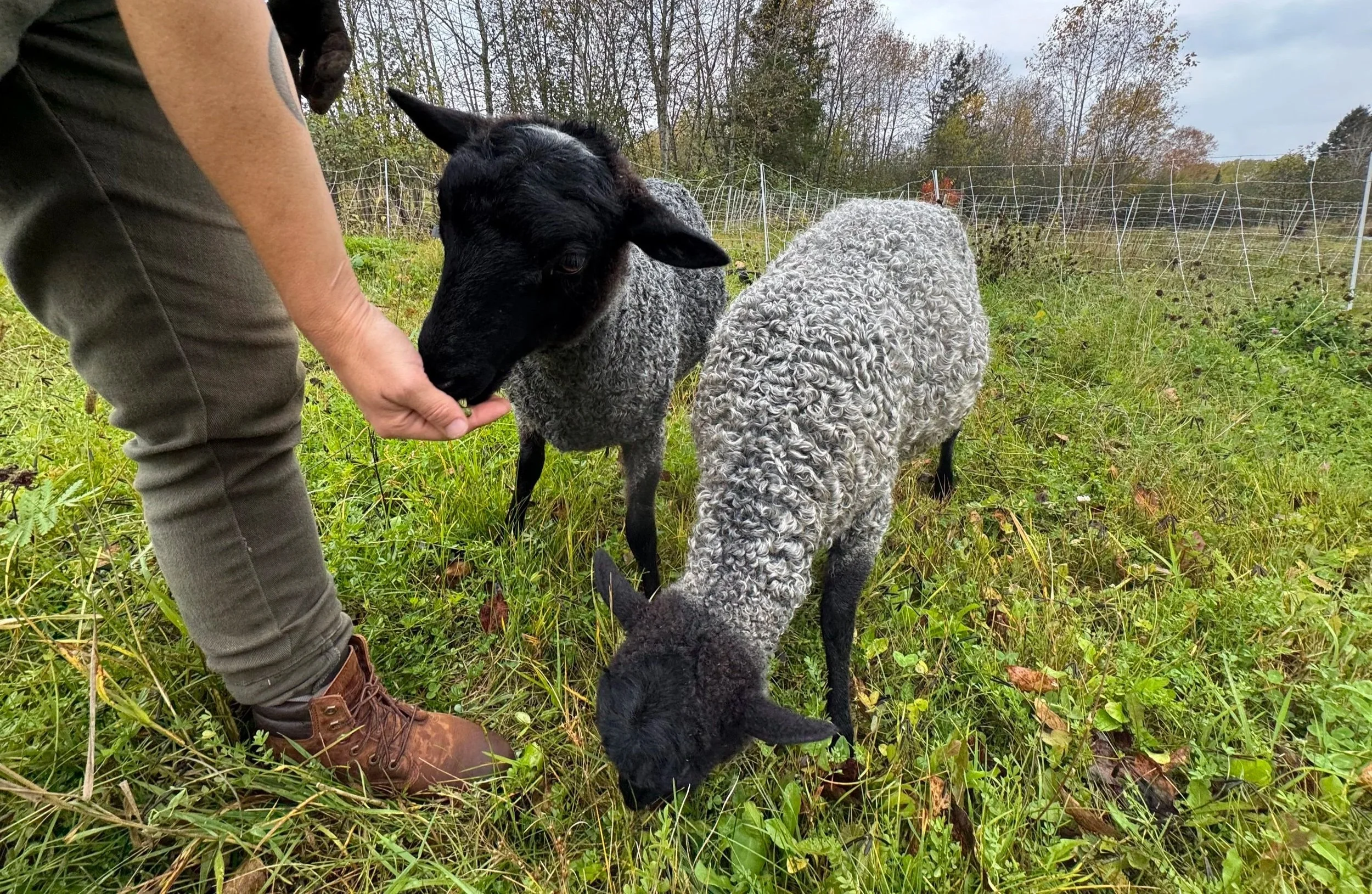for community and ecological resilience.
Our mission is to increase the community and ecological resilience of the Northland by growing native perennials alongside food. We are committed to supporting biodiversity and soil health in all aspects of our farm; we follow organic, regenerative practices including no-till whenever possible. Our farm is nestled alongside the Talmadge River, a designated trout stream, on the site of an old dairy farm. We are planting native trees, shrubs, and perennial flowers and removing invasive species to make the landscape more naturally resilient to pests and climate change to ensure we can grow food for our community for many years to come.
Native Perennials
We grow more than 50 native perennials, with a focus on local and regional species that support pollinators and beneficial insects. We collect much of our seed from local natural plant populations in order to provide you with plants adapted to our area. Those not naturally occurring in our area are sourced as close as possible. ALL species we offer are naturally found in MN.
We offer our plants in 6-opacks and as sturdy second-year plants. We also offer a limited number of 50-plug trays specially curated for specific conditions (rain garden, med-dry, shade) containing a mix of species that range in color and bloom time.
Plants can be pre-ordered for pick-up in June, found at our annual plant sale, and at the Duluth Farmers Market. Online orders placed after July 1st will be brought to the Duluth Farmers Market for pickup the following Saturday unless other plans are made.
vegetables
We grow a wide range of veggies on two acres of open fields and in our two high tunnels. In 2025 you will find our products at the Duluth Farmer’s Market on Wednesdays and Saturdays May-October. We will occasionally stock the farm stand, as announced on social media. We have all the basics - root vegetables, potatoes, tomatoes, peppers, beans, peas, squash, garlic and onions, and more. I will also be posting any veggie surpluses on social media for pickup orders, so follow along if you are interested in that.
animals
We raise laying hens and a small flock of Gotland sheep, which we plan to grow over the coming years. The animal component of our farm is largely for our own enjoyment, but we do sell limited quantities of wool and benefit immensely from the added fertility. Our chicken bedding is turned into compost each year to be spread in the gardens, and we sell their eggs in the farmstand. Rotating the sheep around the field periphery improves the soil, increasing grass growth while cleaning up unwanted vegetation. We expect to offer a limited number of whole lambs and pelts as early as 2027.
Why plant natives?
Three reasons to plant natives:
Biodiversity. Native plants evolved alongside the birds, insects, and other wildlife of our region. Many native species coevolved with specific insects or groups of insects, and their survival depends on one another. Increasing the diversity of plants in your yard will allow for greater insect diversity and other wildlife to thrive.
Soil Health. Their deep roots stabilize the soil, prevent runoff, and sequester carbon. As roots die back each season, they leave tiny air channels to aerate the soil and improve drainage.
Low-maintenance. There are natives that will thrive in every combination of soil, water, and light conditions. If site-appropriate species are planted, they will require very little input once established, and are highly disease resistant and low-maintenance compared to many ornamental varieties.
Three reasons to buy local produce:
Lower carbon footprint. Food grown locally doesn’t require a truck to carry it across the country and is less susceptible to supply chain disruptions.
Higher nutritional value. Because local food can be harvested within a few days of sale, your produce retains more of its nutritional value, which tends to drop over time after harvest. Kale and spinach are classic ‘eat me now’ veggies - the more quickly they are eaten after harvest, the better. Additionally, local farmers can grow varieties that are more nutritionally dense and flavorful instead of varieties that last long or don’t bruise easily. Your fresh zucchini should be SOFT, not firm like those you find in the store.
Support local economy. Supporting local farmers means more money stays in the local economy.













